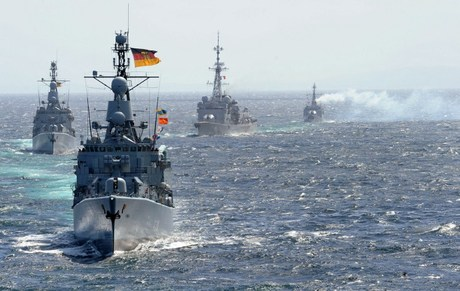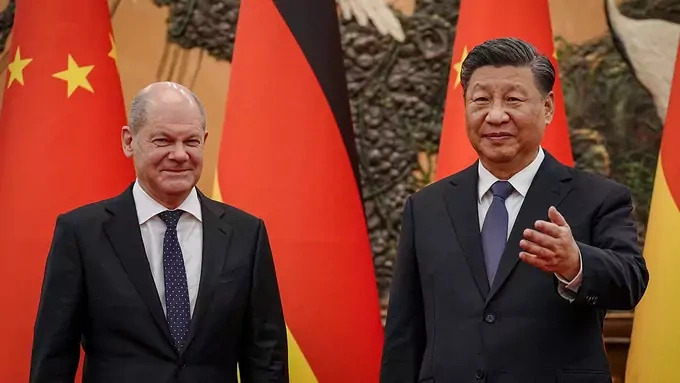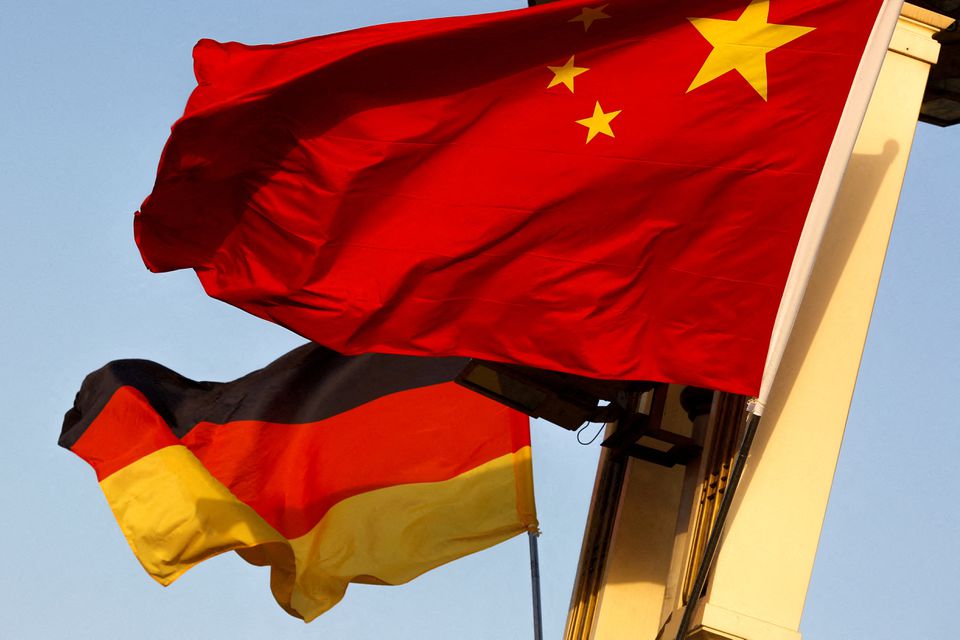To Uphold Rules and Secure Trade, Move Amid Rising Chinese Ambitions

German Defence Minister Boris Pistorius announced on Sunday that Germany will send two battleships to the Indo-Pacific in 2024, amid escalating hostilities between China and Taiwan and the dispute over the South China Sea.
Speaking at Asia’s most significant security conference, the Shangri-La Dialogue in Singapore, Pistorius urged nations to defend the rule-based international system and the preservation of critical maritime routes.
Table of Contents
Maritime Vessels Stationed
According to a transcript of his address provided by the Berlin defence ministry, he stated that to this end, the Bundestag sent a “frigate”, similar to a battleship to the Indo-pacific region two years ago, in 2021 and that the German Government will position a frigate and a supply ship as maritime assets in the region.

In an allegation that appeared to be intended for China, he stressed that the deployments of the battleship were not made against any particular country.
Upholding Rules and Regulations
On the contrary, he said that the battleships are committed to upholding the system of rules and regulations to which all the countries agreed and from which they are all to benefit, whether in the Mediterranean, the Bay of Bengal, or the South China Sea.
Berlin is trying to balance its security and financial interests in the region by showcasing a stronger military presence in the area, as China is Germany’s paramount trading partner.

For the first time in over 20 years, a German battleship entered the South China Sea in 2021, joining other Western countries to bolster the number of military vessels in the vicinity and expand its armed presence amid mounting concern about China’s geopolitical aspirations.
China has established military installations on man-made islands in the South China Sea, home to abundant fisheries and gas resources, despite an international court decision that Beijing has no legal justification for these claims. Nevertheless, China claims an overwhelming majority of the South China Sea for economic and defensive reasons.
Sino-Germanic Relations
German-China relations have witnessed significant transformations in recent years, shaped by political, economic, and cultural factors.
China and Germany have a long history of diplomatic relations. From the beginning of diplomatic ties in 1972 until Chancellor Angela Merkel’s repeated trips to China, both countries have worked to deepen their cooperation in several areas. Historical interactions have enhanced understanding among parties and made it easier to lay the groundwork for broad collaboration.
German-Chinese ties are fundamentally based on economic cooperation. Within the European Union, Germany is China’s top trading partner, with significant bilateral trade volumes. China’s industrial strength is complemented by Germany’s sophisticated manufacturing know-how and technology, which encourages cooperation in industries including renewable energy, machinery, and the automobile industry.

However, some issues call for constant discussion and negotiation, such as trade imbalances and worries about preserving intellectual property rights.
Positive and controversial aspects of Germany’s and China’s political interactions exist. On the one hand, bilateral agreements and high-level visits have improved political ties. Relationships have, however, occasionally become tense over concerns with human rights, the rule of law, and freedom of expression.
Similar to other countries, Germany has attempted to strike a balance between economic interests and concerns for human rights, which occasionally causes conflicts in diplomatic interactions.
German-Chinese relations serve as an example of the complexity and interdependencies of the contemporary world. Economic links have provided a solid framework for collaboration, but disagreements over political and human rights issues still need to be solved.
To address these issues and explore possibilities for cooperation in areas like sustainable development and innovation, both countries must maintain an ongoing open and productive discourse.
It will be interesting to see how the deployment of the battleship affects these relations.













